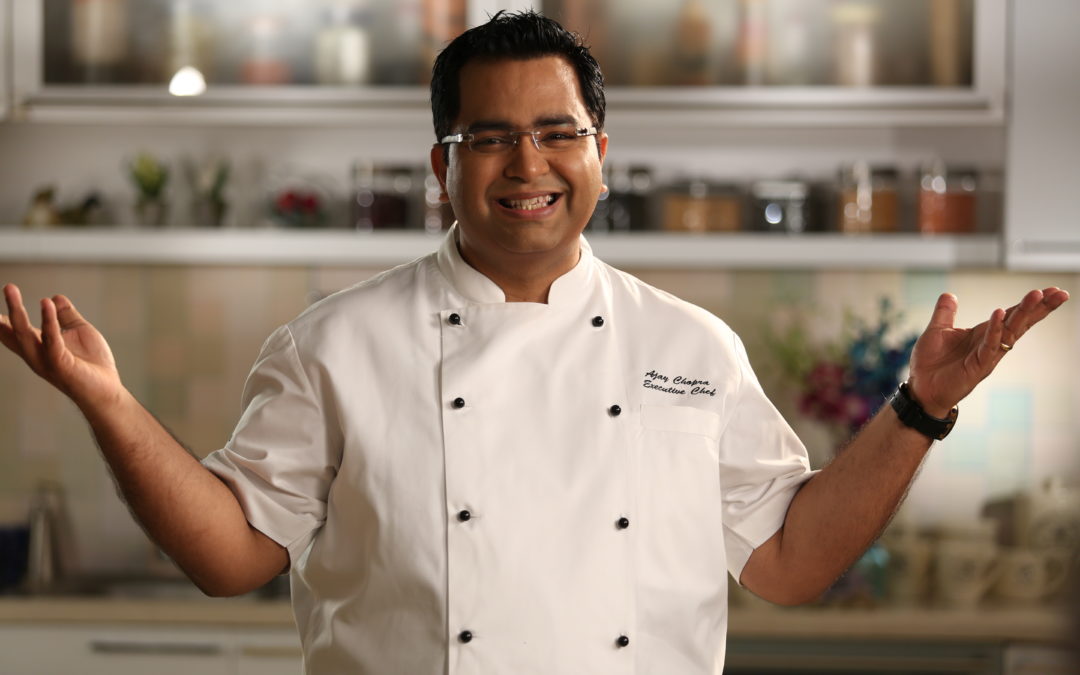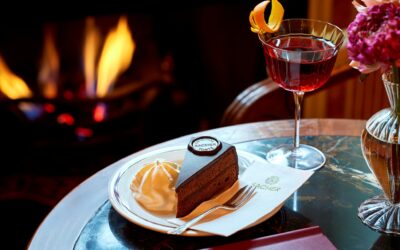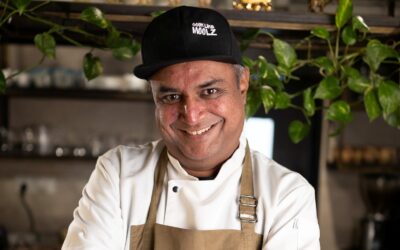Master chef Ajay Chopra started his career at the Cecil Oberoi at a fairly young age and is now a celebrity chef in India. He was a gold medallist from the Oberoi School of Learning and Development which is a renowned institute in India. After his training he worked at The Oberoi hotel in Delhi, The JW Marriott Mumbai, at the acclaimed Mint Leaf chain of restaurants in London and The Westin Mumbai. In 2014, Chef Ajay Chopra decided to be independent and became a Chefpreneur. Under the brand Zion Hospitality, he consults restaurant developers and catering companies with their menu designs, culinary concepts and culinary skills.
How would you describe your cooking style and the philosophy behind it? Do you have a motto?
I would like to start by saying that I do not limit myself to a set cooking style. My roots are strong in North Indian cuisine but that not only helps me to create modern dishes, but also reinforces the ethos of the dishes I curate. If there’s one thing I’ve learned about food philosophies, is that they change. My passion for food is my drive and I can proudly say that food has had an influence throughout my life. This passion, has not only taught me, but helped me evolve as an individual. Whether it was leading five star brands or teaching through television shows, it is my love for cooking and passion for creativity that has got me here so far.
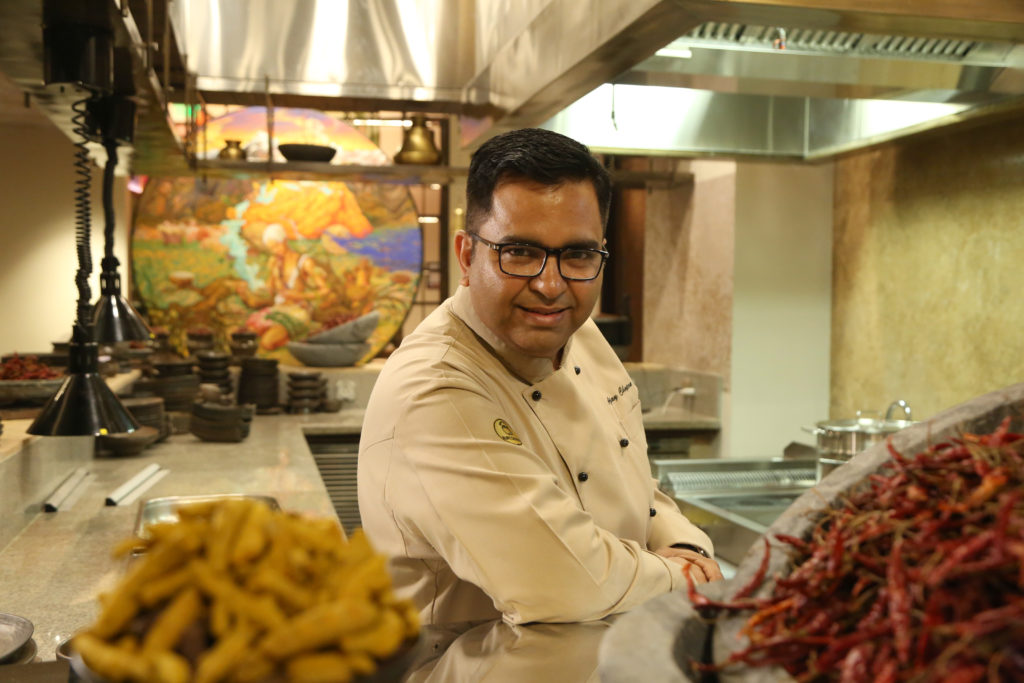
Have you established any amazing cooking techniques? Are there awards?
My cooking techniques are built on the mastery of the basics of the Indian and European cuisine. Whether it is making a lip smacking Thecha using avocados or making an Au – Gratin using Khichdi. I make sure that the ethos of the dish is present, bringing out a certain nostalgia putting a smile on people’s faces.
Which easy recipes could you outline for us (ingredients, preparation) that represent your work that you think we should try?
I have launched a new YouTube channel called The Big daddy Chef, where you can find a list of easy and healthy recipes like Stuffed Paratha and even funky, must-try dishes like Chicken Thai Thigh.
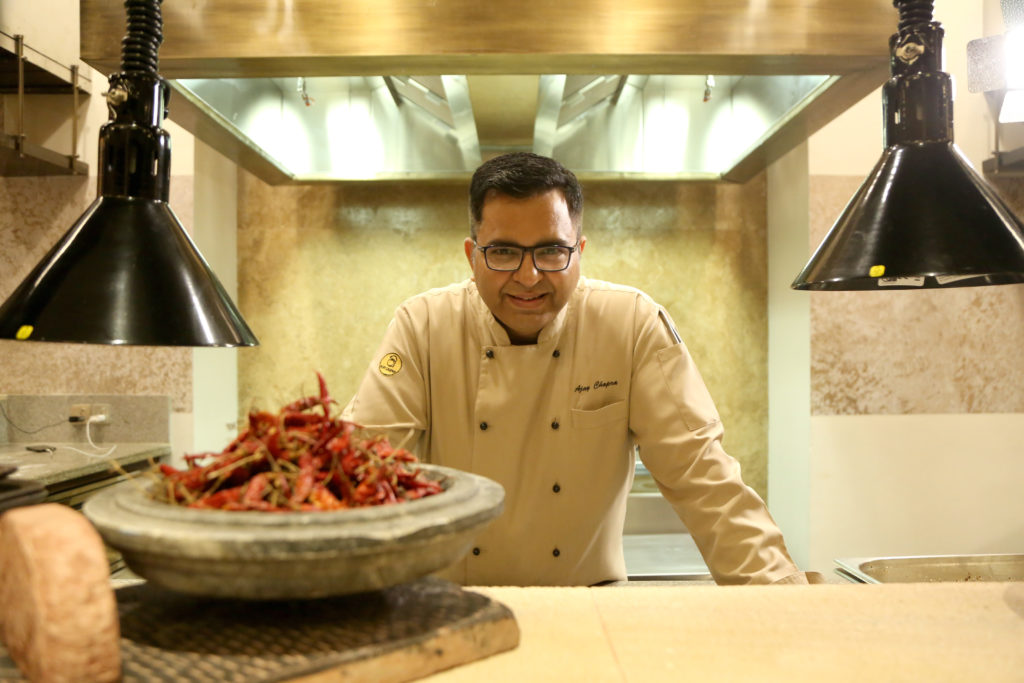
Which of your latest creations would you like to share with us?
I would love to share two of my latest creations: Flower Power: is a salad based on Mesculn (French term for mixed leaves) including: Nastridium leaves, pea shoots, baby amaranth and micro greens, mixed with baby lettuce and edible flowers. Spruced up with herbs like coriander, mint, tarragon, basil. This is dressed with a raspberry dressing served with a honey crisp tuille.
Which culinary trends do you see going on in the world today? How much do trends influence you or inspire you?
Trends are just a brief guideline. The culinary trends going on in the world today is to bring back the age old recipes and cooking methods with a modern make over. I personally curate dishes with age old recipes through a contemporary mind. Food is like fashion. Some dishes are trendy and some are always in fashion. Like a classic roast chicken in gravy is evergreen. Age old methods like fermentation and slow cooking are the next big thing.
What would you do as a chef if money was not an issue for a year?
I would go travelling around the world, exploring and experiencing different cuisines and cultures. As a chef, you can never learn it all. My curiosity is what drives me. Cuisines excite me and incorporating the different influences through my own mindset is what I look forward to.
If you were to write a cookbook, what would it be about?
I have always thought of writing my own cookbook but have somehow never found the time to do so. I would write a cookbook about the depths of the Indian regional cuisines and traditional home recipes that often go unnoticed.
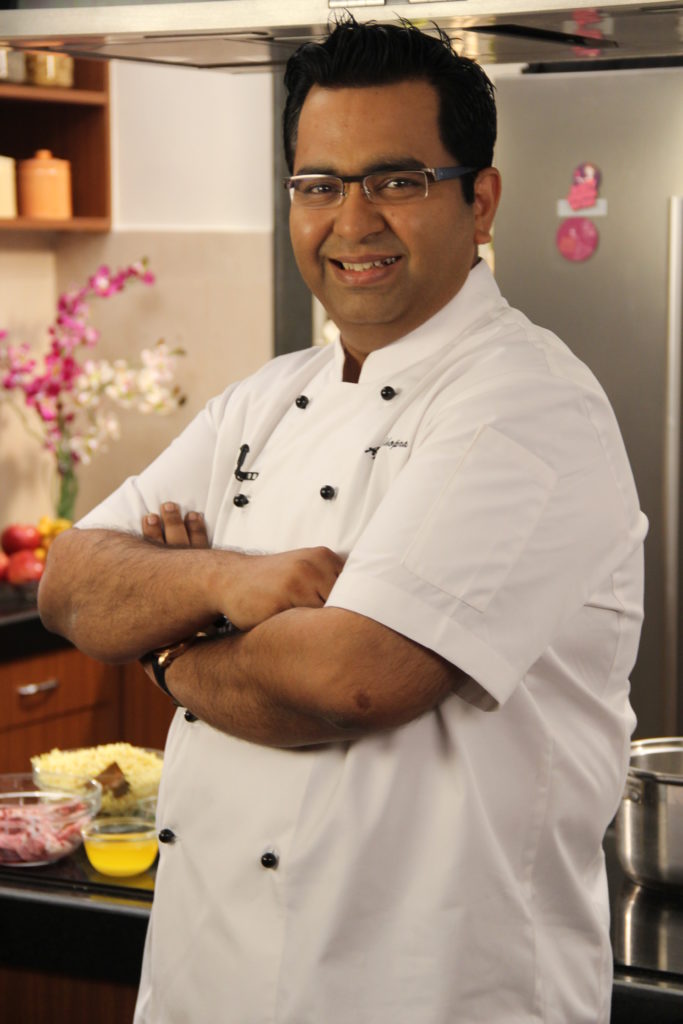
So, Chef, you’ve worked in top kitchens in India and overseas– how do you think your upbringing and training as a chef in India has affected your cooking?
My experience of becoming a chef in India has shaped me. It has not only taught me how to understand and master Indian flavours, but also taught me the value of food and humbled me as a human being.
Did you notice any difference in approach to cooking or running a restaurant in India versus other countries where you have worked?
My approach stays the same. I look at a restaurant and conceptualize it as one whole cohesive unit. The unit stays together, works together and grows together as a family.
What brought you to cooking as a profession?
My mother was a school teacher who was away during lunchtime with her classes and students. Naturally, she cooked for us before she left for work. Piping-hot food was like a fantasy, I dreamt of with the same intensity as many children my age then would dream of being, say, superman. I began spending more and more time in the kitchen and before I realized it, it was my hobby. The next year I applied for an all-India level entrance exam conducted by the National Council for Hotel Management. I found my name and roll number printed in the newspapers in a list of confirmed attendees taking the test. The selection process was successful and I got a place in IHM, Goa. I knew I wanted to become a chef right in the first year itself. Food production as a subject became a favourite than other subjects like hotel law or front office.
What will you never forget from your first year as a chef?
The first years of any chef’s career are the most important and also the most painful. I will never forget the hardships I had to endure. There were endless working hours. There were times when the body would say no, but I was strong in my mind and went on. I had the intent to excel and that is what still drives me.
Many careers begin with hard times where some think about giving up. Was there also such a moment in your career and how did you overcome that? What would you do differently today?
There were many such moments where I would endure such hardships. These are the moments where you have to put your faith in God’s grace. I was fortunate to have mentors who encouraged me and told me to look at the bigger picture and not only the situation.
Looking back, I would see those situations as opportunities, building blocks, turning points and I would ask God for patience.
Which situation helped you in your development as a chef the most?
I was fortunate enough to have mentors who would push us against the wall and in turn I so learn so much Expectations from myself were very high and I would never keep any option but to be the best.
What is the best and worst aspects of working as a professional chef?
The best aspect is that you get to do what you love. I truly believe that if you do what you love, you will never work a day for the rest of your life.
How does the job change people?
Completely. This job is a mirror. It shows you who you truly are. This job breaks you down and when you learn to love it, it satisfies you from within and I think that’s beautiful.
Does a chef ever learn if it’s a curse or a blessing? What are the most misunderstood aspects about the job of a chef?
Eventually, every chef learns that it’s much more than a blessing. It’s a way of life and you get addicted to it. The most misunderstood aspect about the job of a chef is that many people think that it’s a glorious and rewarding job in the early phases. They could not be more wrong.
What does your work mean to you and could you give some insight to the younger generation asking themselves if becoming a chef is for them?
My work means a lot to me. It also demands a lot from me and I think that is what keeps me involved into it. It’s pragmatic, dynamic, ever—changing and rewarding. The younger generation is complicated. They are spoilt for choice. They have to ask themselves, are they coming into the field after watching the glamorous TV shows or do they really want this? Are they ready to clean toilets? Are they ready to scrub equipment? Are they ready to cut endless bags of onions? Most importantly, are they ready to fall in love with the grind?


